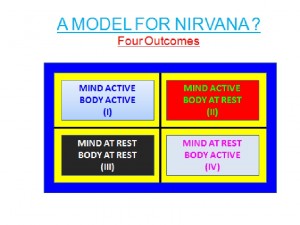Questioner: “I am Brahman” is the simple and straightforward message of Advaita. Brahman is synonymous with Beingness, Consciousness and Happiness. If I = Happiness, I should be always happy, should never be depressed. But I am overcome by the feelings of unhappiness, I get depressed. How come?
***
Well, the answer is “You” (I) can never not be Happy.
Out of Beingness – Consciousness – Happiness, the first two are self-evident. We do not require an external proof to tell me that I exist or that I am conscious. Can you ever say “I am not here” or “I am not conscious”? You have to be there and be present to say, “I am not here.” Similarly, I have to be conscious to say, “I am not conscious.”
In the same way, “I” can never ever be other than Happiness.
What is then the “feel” of unhappiness or depression that arises?
The “feel” cannot be “I” nor can it belong to “I”. That “feel” must obviously be something other than “I”. That is to say that such a feeling cannot be real because Brahman is the only “thing” that is Real. If the feeling is not real, it has to be an imaginary thing for, “I” would never say: “I am unhappy.”
But a Ramesam or a Tom or Dick do “feel” unhappy and say: “I am unhappy; I feel depressed. I am suffering.”
Continue reading →

